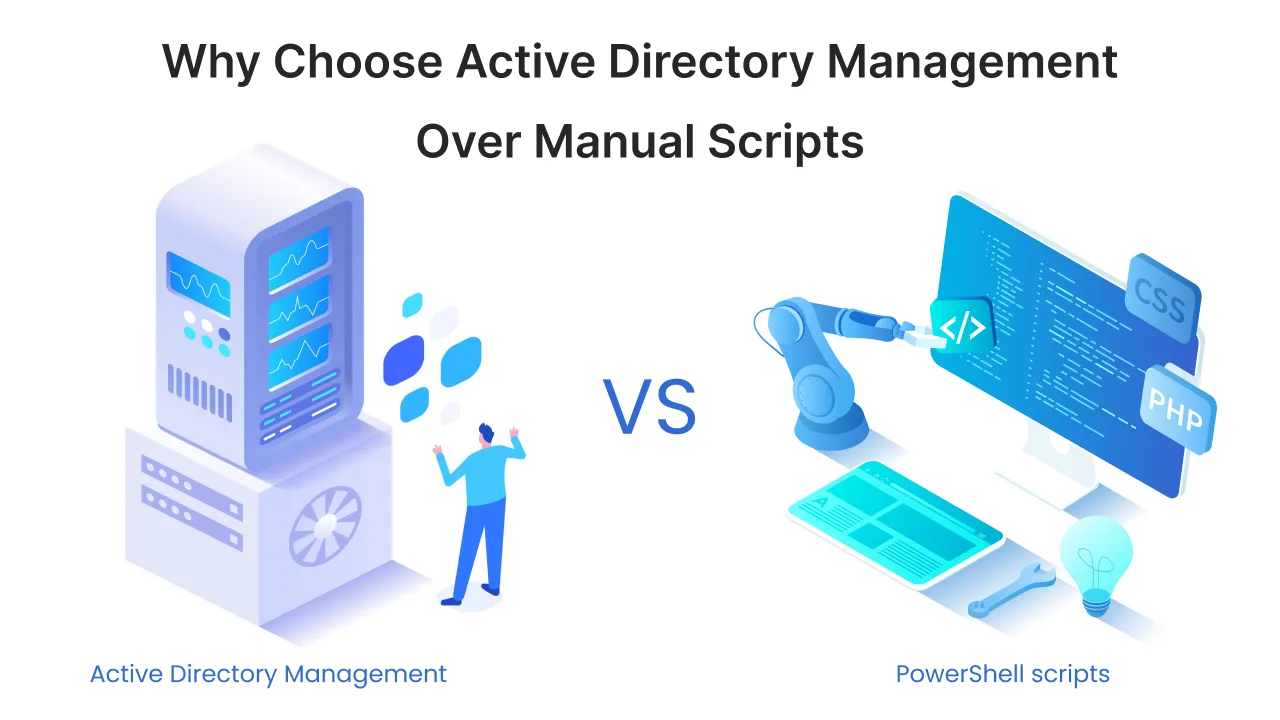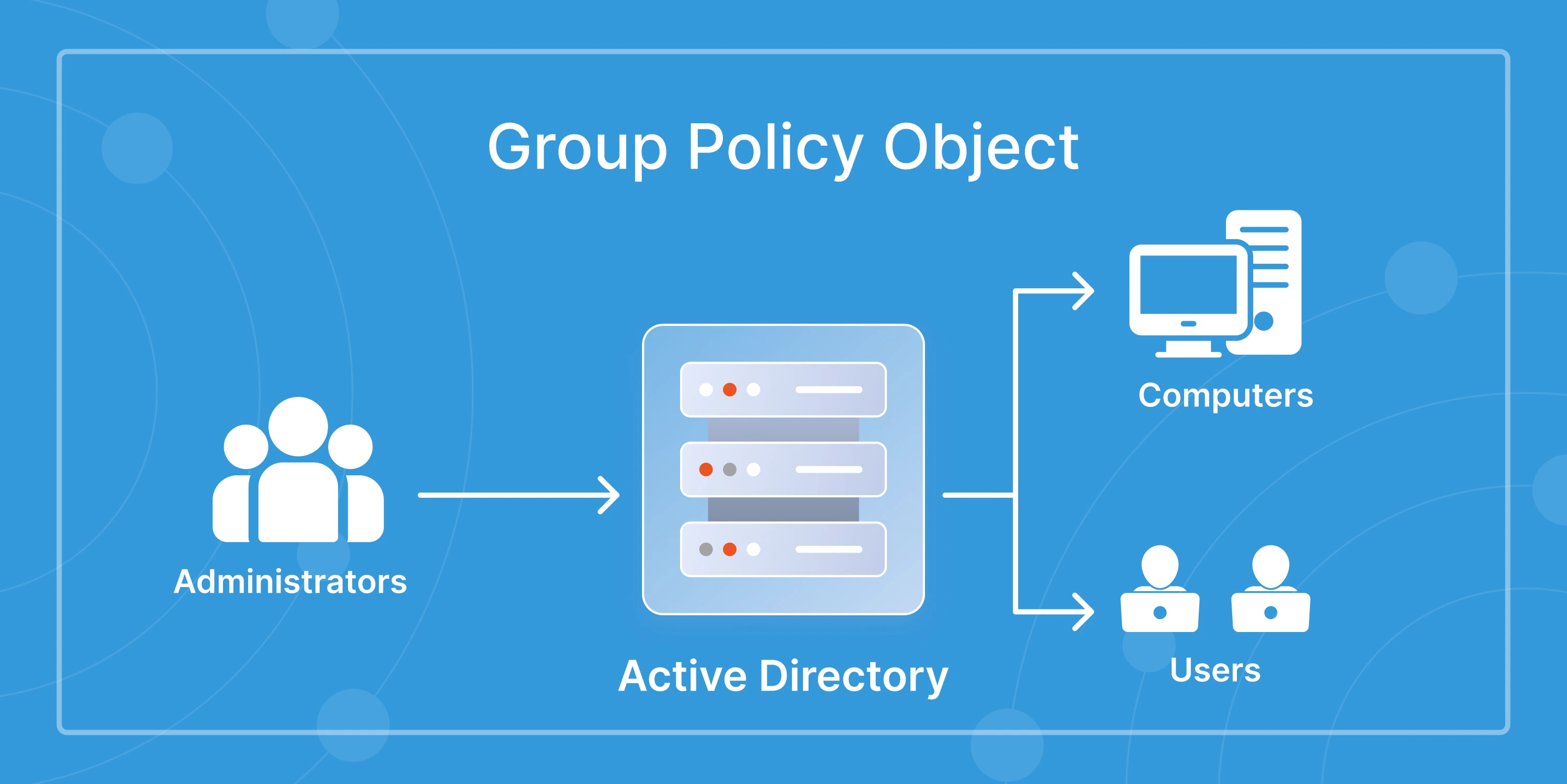Picture a busy workday where employees suddenly find themselves locked out of their accounts. Projects stall, meetings get delayed, and the IT helpdesk is flooded with urgent reset requests. The cause is simple but common: passwords expired without warning.
This is not a one-off problem. Forrester reports that 20 to 50 percent of all IT support calls are related to password issues. Without timely reminders, expired passwords become a productivity bottleneck and a security risk. Setting up Active Directory password expiration notifications ensures users know when to reset their passwords, reducing lockouts and keeping business operations on track.
That’s why it’s important to understand the native options Active Directory provides, their limitations, and how smarter tools can close the gaps.
Why AD Password Expiration Notification Matters?
Password expiration may seem like a routine IT task, but missing it can have wide-reaching effects on business operations.
- Prevents unexpected lockouts and downtime: Timely reminders give users enough time to reset, keeping workflows uninterrupted.
- Reduces IT helpdesk calls: Expired passwords are among the most common causes of support tickets, and automated alerts help cut down this volume significantly.
- Improves compliance and audit readiness: Regulatory standards such as HIPAA, SOX, and GDPR require organizations to maintain strong identity management practices. Password expiry notifications provide an easy way to show accountability.
- Reinforces strong password hygiene: Regular resets reduce the risks associated with stale or compromised credentials, strengthening overall security posture.
The Native Way: AD Password Expiry Notification Using GPO
Active Directory has a built-in method to notify users before their passwords expire. This is done through Group Policy Object (GPO) settings, specifically the Interactive Logon: Prompt user to change password before expiration policy. By enabling this, users will see a reminder during login that their password is nearing expiry. While this native feature works, it comes with clear limitations:
- Reminders only appear at login, so users who rarely sign out may miss them.
- No support for email or SMS notifications.
- IT teams have no way to track who received the alert or acted on it. This makes GPO useful for basic setups but insufficient for organizations that need flexible, multi-channel, and reportable notifications.
Smarter Way: miniOrange AD Tools Password Expiry Notification
While GPO provides only a basic reminder, organizations today need something more reliable and user-friendly. This is where the miniOrange AD Tools Password Expiry Notification feature makes a difference.
Instead of depending on login prompts, miniOrange sends reminders directly to users through email, SMS, or push notifications. IT admins can define how many days in advance the alerts should go out, how often they should repeat, and what the messages should say. On top of that, detailed reports show who received and acted on the alerts, giving IT complete visibility and compliance assurance.
The result is simple: fewer lockouts, fewer helpdesk tickets, and a smoother password management experience across the organization.
How Password Expiry Notification Works
Password expiry notifications work by following a simple flow. An organization sets a policy that defines how many days before expiration users should be reminded, how often the reminders should repeat, and through which channel the message should be delivered. Once these rules are in place, notifications are sent automatically, alerting users before their passwords expire.
Typically, multiple reminders are used, for example, a first alert a week before expiry, followed by another three days before, and a final reminder just hours before the deadline. Every notification helps ensure employees take action early, preventing last-minute lockouts and reducing helpdesk pressure.
For a detailed step-by-step setup guide of how miniOrange AD Password Expiration Notification Tool works, read the full admin documentation here
Key Features of miniOrange Password Expiry Notification
Instead of generic alerts, miniOrange focuses on solving real-world password expiry problems for IT teams and users.
1. Stay Ahead with Automated Reminders
IT admins no longer have to track expiry dates manually. With automated reminders, users receive alerts on time, cutting down the risk of mass lockouts.
2. Send Branded, Actionable Alerts
Every reminder can carry your organization’s branding, password reset links, or IT support contact details, so users know exactly what to do when their password is about to expire.
3. Give Users Multiple Chances to Act
Set reminders to go out at different intervals, like a week before expiry, then again three days prior, and a final nudge just hours before the deadline. This ensures no one misses their chance.
4. Reach Users Where They Are
Not everyone checks the same channel. miniOrange lets you send expiry alerts by email, SMS, or both, so users always see the message in time.
5. Track Compliance in Real Time
With built-in audit logs, IT can see who received reminders and who reset their password. This closes the visibility gap and simplifies compliance reporting.
6. Notify Only the Right People
Instead of flooding the entire domain with alerts, you can target specific users, OUs, or security groups. This way, notifications stay relevant and avoid unnecessary noise.
Real-World Use Cases of AD Password Expiry Notifications Across Industries
Different industries face unique challenges when it comes to expired passwords. miniOrange AD Tools adapts to each environment, making password expiry reminders more effective.
1. Keep Operations Running Smoothly in Healthcare
Doctors, nurses, and staff can’t afford delays caused by sudden account lockouts. Automated reminders ensure critical systems stay accessible when every second counts.
2. Support Seamless Learning in Education
Students and faculty often juggle multiple systems. Password expiry alerts prevent login issues during exams, assignments, or critical academic deadlines.
3. Strengthen Compliance in Finance and Banking
Financial institutions face strict regulations. Targeted and auditable expiry notifications help demonstrate compliance during audits and reduce risks linked to forgotten passwords.
4. Safeguard Access in Government and Public Sector
Government employees often work across secure systems with strict access policies. Timely expiry reminders reduce disruption and help maintain operational security.
Why Choose miniOrange for AD Password Expiry Notifications
Choosing the right solution goes beyond just sending alerts. With miniOrange AD Tools, organizations get a system built for scale, compliance, and ease of use.
1. No scripts, no complexity
IT admins can set up expiry notifications in minutes without touching PowerShell or coding.
2. Proactive IT support reduction
By automating reminders, IT teams spend less time resolving lockouts and more time on strategic tasks.
3. Compliance built-in
Detailed audit logs ensure that expiry notifications can be tracked and reported during audits.
4. 24×7 support
Backed by round-the-clock assistance to keep your password management strategy reliable.
Conclusion
Password expirations may seem like small events, but when ignored, they can cause major disruptions across an organization. Native Active Directory reminders help to some extent, but they lack the flexibility, visibility, and reliability that modern businesses need. With miniOrange AD Tools Password Expiry Notification, IT teams can automate alerts, customize schedules, track compliance, and ensure users never face sudden lockouts again. The result is fewer helpdesk calls, smoother workflows, and stronger password security across your environment. Ready to simplify password expiry management? Explore the miniOrange AD Tools today and keep your workforce connected without interruptions.





Leave a Comment